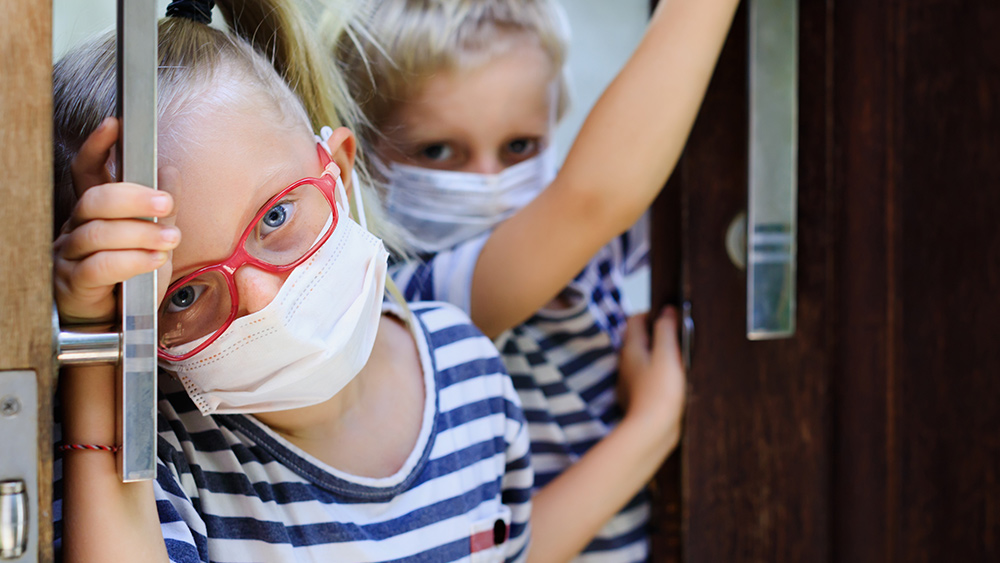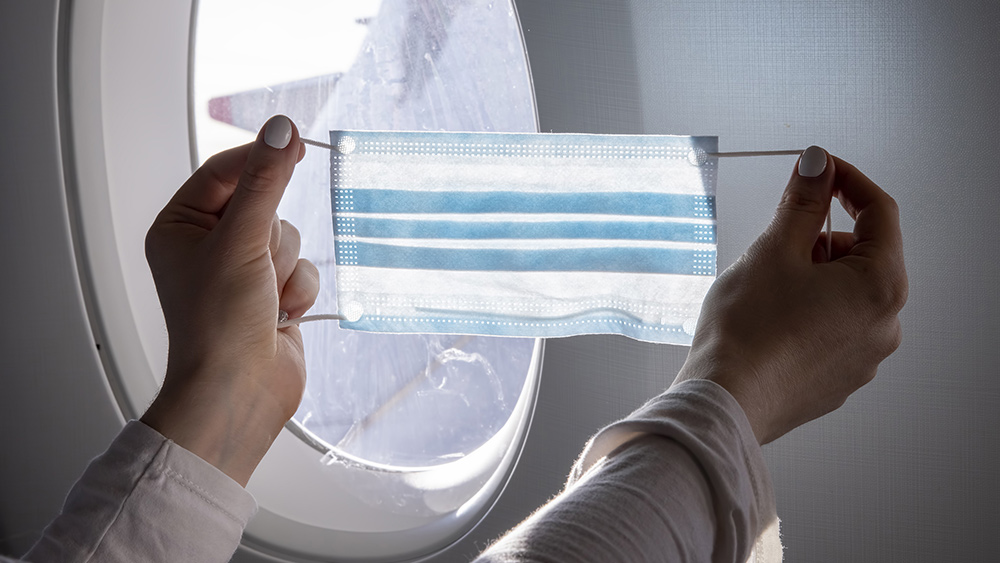COVID-19 lockdowns linked to increased hepatitis risk in children, says Australian infectious diseases expert
04/26/2022 / By Zoey Sky

Peter Collignon, an Australian microbiologist and infectious diseases expert, recently warned that the lockdowns enforced during the Wuhan coronavirus (COVID-19) pandemic may have reduced children’s exposure to adenoviruses, which in turn could increase their risk of developing hepatitis – a severe liver condition.
Adenoviruses are common viruses that can cause cold-like symptoms, such as fevers and sore throats.
According to Collignon, a top doctor in Australia, children who get infections when they are very young may have better immune protection. This means being exposed to adenoviruses at a slightly later stage could cause children’s immune systems to overreact and trigger hepatitis or liver inflammation.
Over a hundred cases of hepatitis in children recorded in the UK amid the pandemic
Health officials in the U.K. are investigating 108 cases of sudden-onset hepatitis in children since the beginning of 2022. The UK Health Security Agency (UKHSA) reported that eight of the cases required liver transplants.
The European Centre for Disease Control (ECDC) also reported that an undisclosed number of childhood hepatitis cases have been detected in Denmark, Ireland, the Netherlands and Spain. As of writing, there were also nine new cases reported in the United States.
People usually develop hepatitis A and E because of poor hygiene, like when they consume food or drink contaminated with small particles of infected feces.
Hepatitis A is passed through fecal-oral contact and it can spread to children in the following ways:
- Eating food made by an infected person who didn’t wash their hands thoroughly after using the bathroom.
- Touching an infected person’s feces or dirty diaper and then putting your hands near your mouth. This can result in outbreaks in child care centers.
- Drinking water contaminated by infected feces, which is common in developing countries.
- International travel to areas where hepatitis A is common.
- Blood transfusions, but this is very rare.
Professor Susan Hopkins, UKHSA’s chief medical advisor, explained that health experts are still examining possible factors that could be behind the increase, but “the most likely” trigger was an adenovirus.
She added that they are concerned since transplants among the age group are extremely rare and it is crucial to understand the cause to prevent more cases from happening.
Hopkins also said 77 percent of childhood hepatitis cases currently under investigation have tested positive for some form of adenovirus. Experts are currently investigating whether there was a change in the genetic make-up or genome of the virus that might trigger liver inflammation more easily in children.
Collignon advised that while there was no spike in hepatitis infections among children in Australia, “it’s entirely possible it could happen.” Hepatitis is a serious condition and it is important to figure out the cause of this spike in cases and why liver inflammation is more easily triggered among children. (Related: Pfizer’s COVID “vaccine” responsible for hepatitis outbreak in children.)
Some say that none of the children with hepatitis were vaccinated against COVID-19, but it’s possible that there is a link between vaccines and hepatitis.
While there has been an increase in hepatitis cases internationally, Collignon said the number of people who were infected with hepatitis is still very small. Still, he urged parents to watch out for symptoms.
Hepatitis symptoms may include:
- Clay-colored stools
- Diarrhea
- Feeling unwell
- Fever
- Flu-like symptoms
- Itchy red hives on the skin
- Joint pain
- Nausea or vomiting
- Sore muscles
- Stomach pain or discomfort
- Very dark urine
- Yellowing skin and the whites of the eyes or jaundice
If you are worried about your child, Collignon suggests getting them checked for hepatitis by a physician at the nearest hospital.
Go to Pandemic.news for more information about hepatitis and other illnesses linked to COVID-19 and vaccines.
Watch the video below to know more about hepatitis among children in the United Kingdom.
This video is from The Clampdown Report channel on Brighteon.com.
More related stories:
Florida’s DeSantis says children should not get “vaccinated” for covid.
Pfizer wants to give children aged 5 to 11 COVID-19 vaccine booster.
Athletes dropping dead, children contracting hepatitis: Are COVID jabs to blame?
Sources include:
Submit a correction >>
Tagged Under:
adenovirus, children's health, coronavirus, covid-19, Hepatitis, immune system, infections, liver health, liver inflammation, lockdowns, outbreak, pandemic
This article may contain statements that reflect the opinion of the author





















